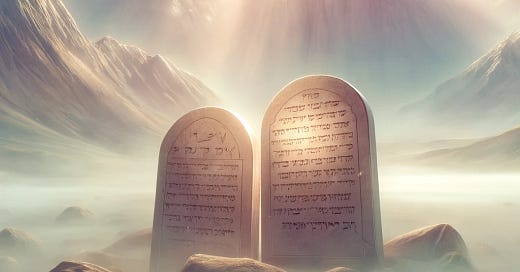Pinchas: Truth-Seeker
In commemoration of the 25th yahrtzeit of my Rosh Yeshiva, HaRav Ya'akov Weinberg zt'l (HaRav Shmuel Ya'akov ben HaRav Yitzchak Matisyahu zt'l)
This past week, the fast day of the 17th of Tammuz also marked the 25th yahrtzeit of my Rosh Yeshiva from Ner Yisroel, Rabbi Yaakov Weinberg zt’l. As I mentioned this week, Rabbi Weinberg was revolutionary in the Jewish world; he was the rabbi's rabbi. His students did not simply become rabbis; they became leaders of communities across the globe. They continued to seek his counsel on weighty issues long after they left yeshiva, around the clock, because he was unrivaled in his Torah knowledge, experience, open-mindedness, and insight. I was fortunate to be a "ben bayit" in his home, where he taught me so much about Torah and ignited my passion to serve the Jewish people in a leadership role.
There is a message in this week's parsha, as well as in the date of Rabbi Weinberg’s passing, the 17th of Tammuz, that encapsulates one aspect of his legacy and also has a profound bearing on our lives. In one episode on that date, Moses sees the Jewish people worship the golden calf at Mt. Sinai, and he reacts by smashing the tablets he has received from God. It was said that Rabbi Weinberg’s death on the 17th of Tammuz was comparable to the breaking of the tablets because so much potential Torah wisdom was now lost.
Many ask why we fast for the breaking of the tablets rather than for the golden calf transgression, even though the destruction of the tablets was not the primary tragedy but rather a result of the sin. However, that characterization misses an important point: the sin of the golden calf was not simple idol worship. The Jewish people were seeking an intermediary to connect them with God, similar to how we use tangible objects like the synagogue, Torah scroll, or physical mitzvot for the same purpose. However, the important difference, as explained by the Kuzari, is that some intermediaries, such as the cherubim on the Ark, or the mitzvot, were commanded by God, whereas the golden calf was a human creation. To devise an intermediary from one's own vision is to impose one's self-centered view on God, which is haughty and clouds judgment. In contrast, if we follow God's instructions, we foster a humble relationship with Him.
The tablets were akin to a wedding ring, symbolizing the bond between God and the Jewish people. When Moshe saw the golden calf, created solely from the people's selfish vision, he knew that it was an abrogation of the relationship with God that was embodied in the luchot, so he broke the tablets. His act of breaking the tablets highlighted the inherent conflict between human arrogance and divine humility. The tragedy of the 17th of Tammuz marks the beginning of a three-week period of failure, ending in the destruction of the Temple, rooted in hubris and a rejection of the relationship between God and the Jewish people.
To address these flaws today, we must embody the qualities that Rabbi Weinberg exemplified: humility and dedication to truth. He taught us to seek understanding in Torah without imposing our own views on it. He encouraged us to ask questions, engage personally with the text, and avoid accepting it as mere dogma. Rabbi Weinberg emphasized the importance of striving to understand what the Torah is actually saying, rather than making it fit our preconceived notions. He taught us to remain open to uncovering the core truth within each text and to cultivate that insight, allowing us to attain even greater wisdom from every interaction with the Torah.
One day after a class by Rabbi Weinberg, I followed him to his next appointment with a group of boys. I asked what I believed was a very strong question. He stopped in his tracks, looked me in the eye, and said, "My dear student, you're asking an excellent question... but it doesn't make sense!" Then he walked away, leaving us dumbfounded. Through lessons like this, he taught us that humility is a vital element of our relationship with Torah. A brilliant question means nothing if it lacks connection and understanding. Rabbi Weinberg’s legacy embodies what the luchot represented: dedication to truth and humility, prioritizing the Torah’s guidance in our lives and not allowing our selfish desires to cloud our vision of truth. May his memory be a blessing to us all.
Shabbat Shalom,
Eliezer Hirsch


